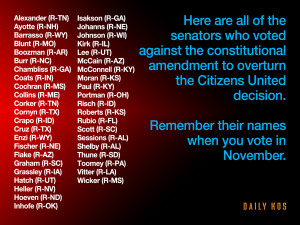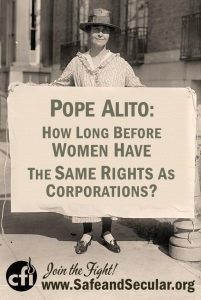Campaign fundraising is as dirty a game as politics itself. Anyone and everyone can be bought and sold for the right price. It starts with the insistent fundraising calls.
By Gretschman for Occupy World Writes
![Call center agent. By FiveOne51 (Own work) [CC BY-SA 3.0 (http://creativecommons.org/licenses/by-sa/3.0)], via Wikimedia Commons](http://occupyworldwrites.org/wp-content/uploads/2016/04/Call_Center_Agent.jpg)
Call center agent. By FiveOne51 (Own work) [CC BY-SA 3.0], via Wikimedia Commons
I asked “Josh” if he was a volunteer, or if he was paid to solicit for the Republican party. He said that he was indeed paid, and he was sorry to have troubled us, he would remove the diseased’s name and phone number from their records and that the Republican Party of Florida would not call us again. I asked him WHY the Republican Party of FLORIDA would be contacting people in Minnesota to solicit funds. I asked him WHERE he was calling from.
At this point “Josh” admitted that he had misunderstood where his solicitor was calling, he thought it was Florida, when in fact it was Minnesota, because they were soliciting funds for Stewart C. Mills III to wage a campaign against incumbent Rick Nolan in the 8th District of Minnesota. Mills ended up losing to Nolan in 2014.
“Josh” said that he was employed by a call center for the Republican Party based in Mankato Minnesota. Once “Josh” assured me yet again that his call center would not call our number again, I thanked him for that courtesy and my wife and I started researching what we would find out to be some startling truths about political fund raising -American style.
We first located the call center in Mankato, Minnesota. it is one of many businesses located in a multi-use building in the college town of Mankato. We did enough research to find out that the business “FLS Connect” has four call centers. One in St Cloud, Minnesota, one in Phoenix, Arizona, one in Springfield, Missouri and the one that we had contact with in Mankato. FLS Connect’s co-founder Jeff Larson, is a Karl Rove protege.
Being a call center solicitor for FLS Connect is a good job if you want to make ten dollars an hour and you have a criminal record as a felon. if you aren’t so good at persuading people to part with their money, you can become a “supervisor” who handles the actual credit card transactions of the money solicited by the people doing the solicitation. item of note though -“supervisors” at this company only receive nine dollars an hour. Our research into what current and former employees said about their workplaces was very eye-opening. One of the people reviewing the business said that it was a “great” job as long as you left your ‘conscience and morals’ at the door when you came to work. Another onetime employee stated that they were instructed not to let the person being solicited from off the line until a donation is made. The average length of employment at this business was less that two months.
The next thing we researched was why the scion of the Mills Fleet Farm chain of stores would need to have the Republican Party solicit donations on his behalf. During his 2014 race against Nolan, he said, “I will be playing a role in my campaign financially.” The Mills family recently sold out their family business to the tune of 1.2 billion dollars to the a “leading global investment firm, KKR, [who] manages investments across multiple asset classes including private equity, energy, infrastructure, real estate, credit and hedge funds.” It would seem that a political candidate might not need money from the constituents in his or her district with a ‘family ‘bank account that runs into ten figures. Running for political office must be more satisfying, or at least less painful when you lose if it is other peoples’ money that you are campaigning with.
The last point that we researched did not yield any answers. Why would the solicitors try to solicit money for a political candidate from the 8th district of Minnesota from potential donors who do NOT live in that district?
The sad part of this is that this style of solicitation is not just limited to one political party or certain political offices. Thanks to the SCOTUS “Citizens United” decision, the ever increasing amount of money required to keep up with the candidate on the other side of the ballot will cause this type of heavy handed solicitation by paid solicitors to become even more commonplace. Charities are required by law to provide information to donors about how much of their donations ACTUALLY go to said charity after expenses. I wonder what we would find out about political donations if the same standards were applied to politics.



![Photo by USGS Native Bee Inventory and Monitoring Laboratory from Beltsville, USA [CC-BY-2.0 (http://creativecommons.org/licenses/by/2.0)], via Wikimedia Commons](http://occupyworldwrites.org/wp-content/uploads/2014/07/512px-Reticulitermes_flavipes_worker-300x279.jpg)
![Looking West-Northwest at Citigroup Center, New-York. Photo by Johan Burati [Public domain], via Wikimedia Commons](http://occupyworldwrites.org/wp-content/uploads/2014/07/Citigroup_center-240x300.jpg)

![By Brian Turner (Flickr: My Trusty Gavel) [CC-BY-2.0 (http://creativecommons.org/licenses/by/2.0)], via Wikimedia Commons](http://occupyworldwrites.org/wp-content/uploads/2014/04/512px-My_Trusty_Gavel-300x225.jpg)
![Photo By Steve Petteway, Collection of the Supreme Court of the United States (Roberts Court (2010-) - The Oyez Project) [Public domain], via Wikimedia Commons](http://occupyworldwrites.org/wp-content/uploads/2014/03/1024px-Supreme_Court_US_2010-300x200.jpg)
![By Dave Bullock from Derby, UK (Bible Original) [CC-BY-2.0 (http://creativecommons.org/licenses/by/2.0)], via Wikimedia Commons](http://occupyworldwrites.org/wp-content/uploads/2014/03/800px-Bible_paper-300x225.jpg)
![Photo By J. Troha (Photographer) [Public domain or Public domain], via Wikimedia Commons](http://occupyworldwrites.org/wp-content/uploads/2014/03/1024px-Prescription_drugs-e1396222350199-257x300.jpg)
![Pope Francis, March, 2013. Photo from presidencia.gov.ar [CC-BY-SA-2.0 (http://creativecommons.org/licenses/by-sa/2.0)], via Wikimedia Commons](http://occupyworldwrites.org/wp-content/uploads/2014/03/Pope_Francis_in_March_2013_cropped-208x300.jpg)
![By Constitution_Pg1of4_AC.jpg: Constitutional Convention derivative work: Bluszczokrzew (Constitution_Pg1of4_AC.jpg) [Public domain], via Wikimedia Commons](http://occupyworldwrites.org/wp-content/uploads/2014/03/1024px-Constitution_We_the_People-1.jpg)

![Photo by Harris & Ewing [Public domain or Public domain], via Wikimedia Commons](http://occupyworldwrites.org/wp-content/uploads/2014/02/Inez_Milholland_memorial_service_-_Congressional_Union_for_Woman_Suffrage-280x300.jpg)